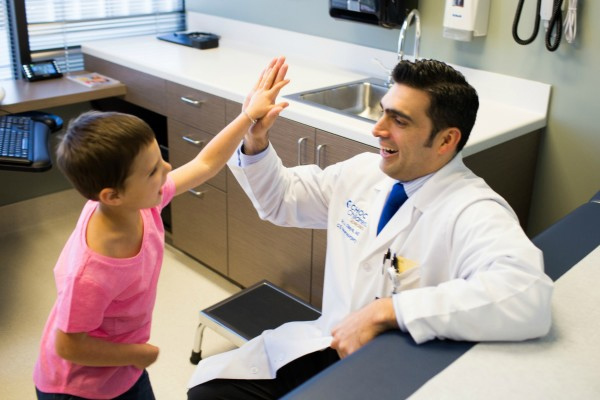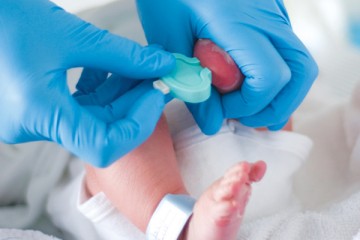WHAT IS EPILEPSY?
Epilepsy is a seizure disorder characterized by having two or more “unprovoked” seizures, says
Dr. Mary L. Zupanc, CHOC neurologist and epilepsy specialist. Epilepsy typically begins in infancy or early childhood, and the sooner the condition is recognized, the more effective the long-term treatment. “The developing brain is much more susceptible to the consequences of recurring seizures because babies’ brains are not fully developed. So the brain can be hard-wired for the seizures to continue. Medical or surgical intervention at an early age can stop the seizures and reverse the process,” explains Dr. Zupanc.
DIAGNOSING EPILEPSY
It’s important to diagnose epilepsy early, identify the specific epilepsy syndrome and get the child on medication or a treatment plan as soon as possible. The child’s seizure history is as important as testing because patients will often have normal test results, says Dr. Zupanc. This does not exclude the possibility of epilepsy.
DIAGNOSTIC TESTS
Several tests can provide more information, according to Dr. Zupanc. They include an EEG (electroencephalogram), which records the brain’s continuous electrical activity; long-term video EEG monitoring if epilepsy surgery is being considered; and an MRI, which uses large magnets and a special computer to take very clear pictures of the child’s brain to help identify the cause of the epilepsy. Says Dr. Zupanc, “All these things can be helpful. When we take the child’s history and family history, consider the development of the child, the physical exam and tests, we may be able to diagnose the specific epilepsy syndrome. This helps determine what type of therapy will work best and answer the question, ‘Will my child outgrow this?’”




















